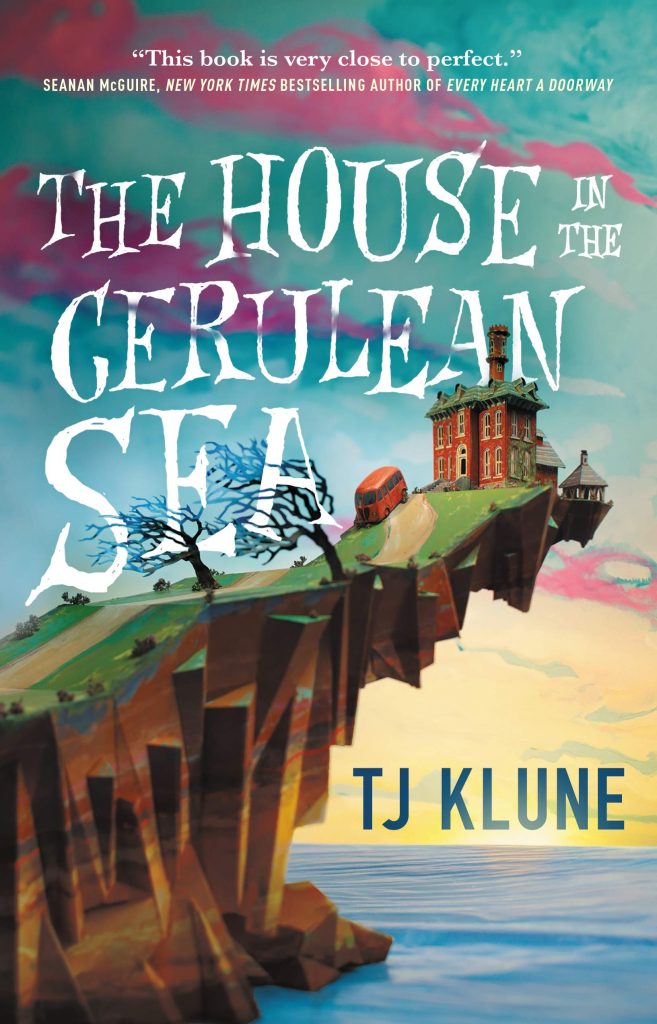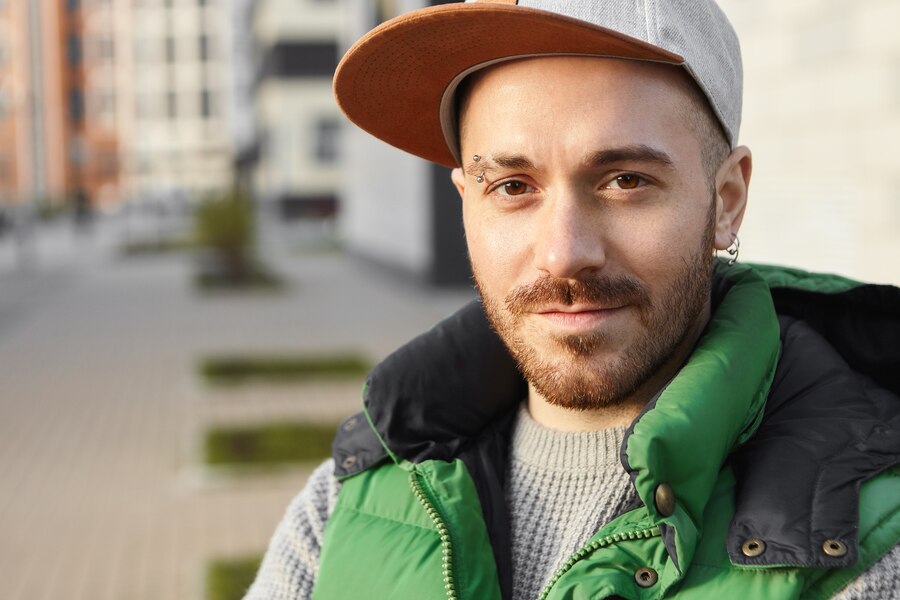In order to better understand his world of magic and the bureaucrats who appear to plod through it, author TJ Klune looked at some history from Canada as well as current events in the US when creating The House in the Cerulean Sea.
Tj Klune:
When an author has a solid, non-flashy idea in their thoughts, it often worms its way into our brains and won’t go away until we either write it down or put it out with fire.
I had the outlines of an idea before I began writing The House in the Cerulean Sea, but they didn’t exactly come together into a cohesive whole. It had to do with how fear and prejudice affected magical people.
It would specifically concern magical offspring, who ought to have been shielded at all costs but were instead rejected for just existing at all.
It helped (infuriatingly so) that I could already hear the voice of the main character, Linus, in my head. Linus was a meticulous man and a stickler for the rules. In an Orwellian society where the government sees everything, knows everything, and controls everything, he would be a caseworker.
Related: Brittney Griner Controversy: Brittney Griner Is Being Criticised for Her Confinement!
As a drone who followed orders because it was expected of him, Linus would serve for the aforementioned government organization known bureaucratically as The Department in Charge of Magical Youth (DICOM). He would also be queer, as I write about queer people from diverse backgrounds.
The picture was still hazy even though the pieces were present.
It was unclear until I learned about the Sixties Scoop, a concept I had never heard of and was not taught in school (I’m American, by the way). Indigenous children in Canada were removed from their homes and families and put in government-approved facilities, such as residential schools, starting in the 1950s and lasting into the 1980s.
The intention was for these kids to be adopted by middle-class, mostly white families from Canada, the US, and even Europe. Over 20,000 indigenous children are believed to have been abducted, but it wasn’t until 2017 that the afflicted families and the Canadian government came to a compensation agreement worth more than $830 million.
I did additional research and found examples of the same thing occurring all over the world, in my own nation as well as abroad: families being split up because they were different, because of their skin color, because of their religion, or because those in positions of power were afraid of them.
In the summer of 2018, months after I finished writing The House in the Cerulean Sea, reports broke from our southern border about families looking for a better life being split up and housed in authorized facilities.
Once more, history was repeating itself with the terrible consistency that it always does.
I’ll say it right up front: I’m a white guy. There isn’t much I should be evangelizing about, frankly. I’m queer, and a loud one at that, but the discrimination I’ve experienced shouldn’t be compared to what other people go through. It is not an event. I’m an American man in my mid-thirties who identifies as cis, so it stinks all around.
I have privileges that others do not. I am aware of this, so when I wrote Cerulean, I knew I had to do it carefully to avoid losing the main idea I had chosen for the narrative.
That Central Theme?
Kindness.
I recognize the way that sounds. Many of you who are reading this probably rolled your eyes at the word. Isn’t that cliché? Yes, it is. However, bear with me for a bit.
It’s 2020 as I write this, and I’m not sure how we’ll get past our divisions. Those in positions of authority can breathe insults with ease. People propagate their hatred on the streets while wearing masks and hoods as if it were gospel.
We all have a right to be angry practically constantly throughout the day. We ought to be furious. The whole world is ablaze. With each fresh breaking transmission, the news gets worse.
Because of who they love, what they believe, or the color of their skin, people suffer from harm or, worse, are killed. I’m concerned that this has become our new normal because we’ve lost our path.
Writing is the only thing I am capable of doing. I started writing The House in the Cerulean Sea after visualizing a future similar to our own where individuals who are different from the majority are under the authority of those in power.
Children, the weakest among us, are removed from their homes and placed in institutions with euphemistically titled orphanages, under the supervision of caseworkers from DICOM.
Linus is given a top-secret mission to look into a secret orphanage that is thought to house the most dangerous youngsters in the world.

What he discovers there transforms him. You’ll have to read the book to find out how exactly, but I never wavered from the idea of kindness. It was significant to me and still is. It seems like plain sense to extend a hand in compassion rather than a fist raised in rage, yet many seem to have forgotten that.
As Linus learns, we must raise our voices on behalf of those who lack the ability to do so and who ought to be permitted to live as small people in this big, wide world. However, there are moments when we must be silent and pay attention to those quiet whispers because, if we don’t, we run the risk of drowning them out.
We are better than we appear to be right now. We are, I am sure. And I think there’s still time for us to change our direction. Even though it will take a long time and a tonne of effort, we are up to the task.
The House in the Cerulean Sea is my greatest dream for the world; it’s a fairy tale about how good we are all if we can just see it. Kindness is our battle cry, and hope is our weapon. We can make this land we call home into something we can all be proud of as long as we stick together.
To know more updates about entertainment information please checkout landscapeinsight.com

Irving is the Chief Editor at the Landscape Insight. He lives just outside of New York. His writings have also been featured in some very famous magazines. When he isn’t reading the source material for a piece or decompressing with a comfort horror movie, Irving is usually somewhere in his car. You can reach Irving at – [email protected] or on Our website Contact Us Page.








